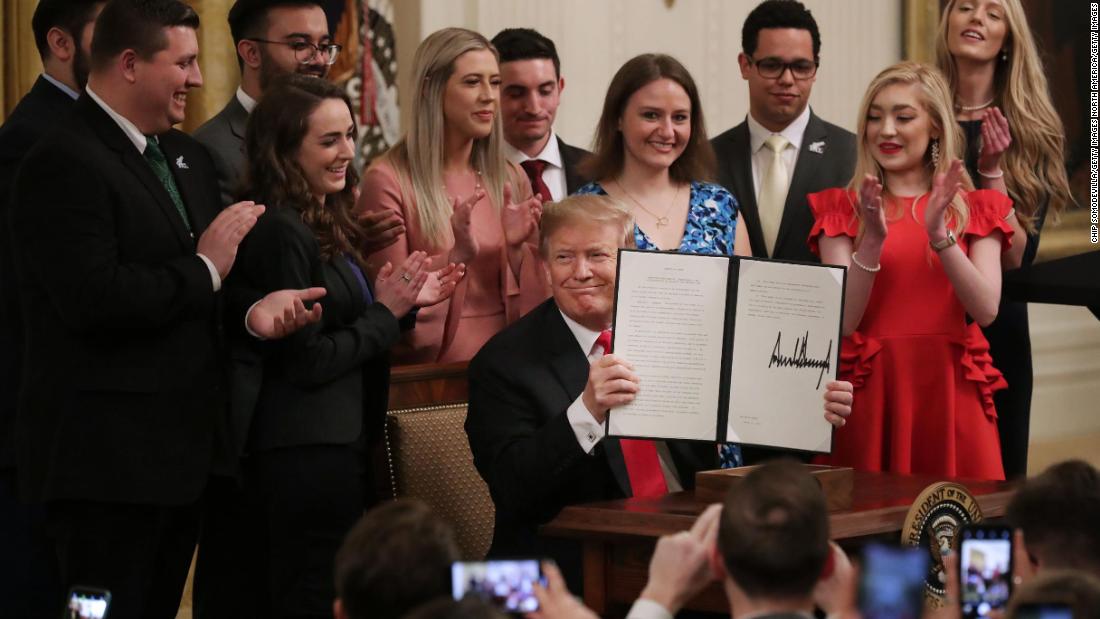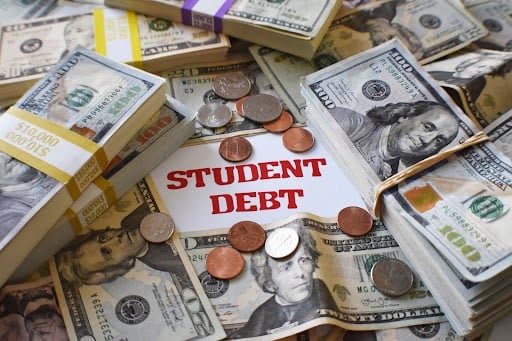The clock is ticking for the Biden administration to let borrowers know whether it plans to extend the pause on federal student loan payments, which is currently set to expire on Aug. 31. If the pause is not extended, 45 million borrowers will have to begin making payments on their federal student loans after a break of over two years.
The department has not yet communicated to borrowers or loan servicers whether it plans to extend the Aug. 31 deadline. However, if history repeats itself, recent actions by the department in communications with student loan servicers could hint at the possibility of an seventh extension to the pause that began in March 2020.
According to Scott Buchanan, executive director of the Student Loan Servicing Alliance, which works with loan servicers who oversee 95 percent of all federal student loans, in recent communications between servicers and the Education Department, which Buchanan said happened over the phone, some loan servicers have been told to hold off on sending billing statements to borrowers.
“We’ve been told to hold off communications to borrowers about that resumption,” said Buchanan. “That makes logical sense if you’re going to push it out, but if you decide not to do that, that means we lost months of communication to build up a successful return to repayment.”
Similar communications were made by the department to loan servicers in March; the previous payment pause was set to end in May. The length of time that loan servicers wait to send communications to borrowers about an upcoming payment varies. According to Buchanan, 45 days before the payment is due is standard for some servicers, a time frame that has already been passed for the Aug. 31 deadline, but some send out billing statements 30 days in advance.
Borrowers Left in the Dark
Without clear communication from the Biden administration on their future plans, borrowers are left in a precarious situation where they must prepare for payment to resume on Sept. 1, even though it is unclear if that will even happen.
After more than two years of not being required to make payments on their federal student loans, borrowers might not be aware that the pause is even lifting, and without the ability for loan servicers to warn borrowers of the upcoming deadline, borrowers might be surprised when repayment resumes and not be financially prepared to tackle new monthly expenses.
“The further repayment requirements are in the back of someone’s mind, the harder it is to pull it forward,” said Buchanan. “It is critically important that we be able to communicate with borrowers and set them up for success now. There’s real downsides to limiting communication here.”
Additionally, with the impending promise that the Biden administration will relieve at least some student debt, and
reports that an announcement on mass debt cancellation could come by the end of the summer, many borrowers are confused on what to expect next, making it difficult to plan for the future.
“Communication is absolutely key, because the pause has gone on for so long, because so many deadlines have come and gone, because so much has happened with student loans during these last two years,” said Regan Fitzgerald, project manager for the Pew Charitable Trusts’ Student Borrower Success project. “Borrowers have gotten a lot of different messages, and they need clear and really actionable communication about when the pause is going to end and when they will have to repay their student loans.”
If repayment resumes at the end of August, the department will have to inform borrowers eventually. Under the law, the department is required to contact borrowers at least six times before they enter repayment at the end of the payment pause.
Research has shown that clear communication from loan servicers and the Education Department can help keep borrowers in good standing with their loan payments, especially for borrowers who are at the highest risk of default, such as borrowers who have defaulted in the past or who are paying their student loan bill for the first time, which will be many more borrowers than ever before considering the millions of borrowers who graduated during the pandemic-related pause.
Most borrowers—60 percent, according to the Federal Reserve Board of Governors—have not made a single payment since the pause began in March 2020, and research shows that most are not prepared financially to resume payments.
A survey of over 23,000 borrowers from the Student Debt Crisis Center in February found that when payments were set to resume in May, 93 percent of borrowers were not prepared, even though one in three borrowers said they had reduced spending on necessities, such as food, rent or health care, in order to prepare to begin paying back their debts in the near future.
Most borrowers are unsure about whether they will even need to resume payments after the pause ends. A survey conducted by the Pew Charitable Trusts in July 2021, when the student loan payment pause was set to expire at the end of Sept. 2021, found that 52 percent of borrowers were unsure if they had to start payments again at the end of the pause.
When repayment resumes, the department has announced that it will put all borrowers who defaulted on their loans prior to the pandemic back in good standing. The so-called “Fresh Start” program will give formerly defaulted borrowers an opportunity to get back into good standing with their student debt payments.
Colleges are worried about the high probability for default once repayment begins. If too many borrowers default on their loans in a certain frame of time, it can have negative consequences for colleges, because their eligibility for federal student aid is determined, in part, based on the ability of graduating students to repay their loans.
For main-street you had people who didn't pay rent for a year, received stimulus checks, an increased child tax credit, and monthly payments per child for around six month. Landloard didn't get any relieve and now making up for it by charging more for rent if the house (or homes) aren't going into foreclosure. And when they raise rent people around them as well. Then you have billionaires who dramatically increased their wealth just within the first few months of the pandemic. Let's not forget the Federal Reserve nearly keeping interest rates at 1-2%. You are correct by one thing. Money invested doesn't impact the economy and only enrich the company. But it's flat out crazy to say people didn't get money like that or Covid was a factor to inflation.
Not saying you but there is a lot of backwards thinking.
 Dude really gonna wait till last minute to do something
Dude really gonna wait till last minute to do something



